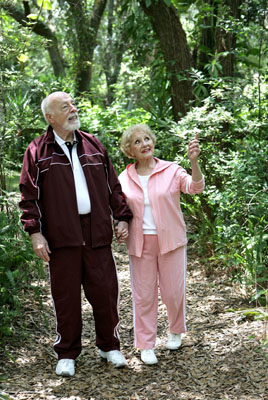 By E. Roberts Musser –
By E. Roberts Musser –
Asset Protection (for the benefit of the elderly loved one)
Thieves are far more sophisticated today, and scams are being perpetrated by legitimate companies. Class action suits were filed here in CA against a famous purveyor of electric beds for fraudulent sales practices. A settlement was reached out of court, but the questionable sales tactics continue unabated. Consumers will view a misleading ad on television or in a magazine, then naively call the telephone number provided to collect a prize. Suddenly a sales person will appear on their front doorstep. Once inside, the representative refuses to leave until the person signs the credit agreement for an extremely overpriced bed ($2000 – $10,000) the consumer can ill afford.
Seniors are especially vulnerable because they are the ones that generally have the money, may be forgetful, and often can become easily confused. Frequently the elderly are targeted for the sale of ridiculously inappropriate and costly annuities, that extend out to a term way beyond their life expectancy. Or hapless elderly folk are talked into obtaining sizeable reverse mortgages for needless “repairs” to the home.
Warn your elderly loved ones to beware and not take the bait, any time there are:
- Requests for advance fees or taxes
- Requests for money
- Requests for personal information
- Encouragement to take out a loan
- Strangers approaching in public
- Unsolicited phone calls, mail, emails, advice
- Fine print or confusing language
- Demand for an immediate decision
- Guarantees or promises
- Offers that sound too good to be true
Make sure proper legal documents are in place to protect assets for the benefit of your loved one, before s/he lacks legal capacity to sign paperwork:
- Will or trust – Wills are an appropriate way to transfer estate assets after death if the estate is worth $100,000 or less. If the estate is small ($20,000 or less), no probating of the will is required. If the estate is worth more than $20,000 but less than $100,000, an expedited probate is available. However, if the estate is worth greater than $100,000, a trust should be set up, so that probate is bypassed altogether. AB trusts are recommended for married couples, to maximize the estate tax deduction (doubles it). Nevertheless, be wary of “trust mills” – in seminar form – that provide “one size fits all” trusts.
- Power of attorney – Assigns an agent to make financial decisions when a person is incapacitated. Generally, be careful the power of attorney does not take effect unless/until the person is declared incompetent by a doctor. Even then, limit powers to simple transactions to pay bills. An exception to this general rule of thumb may be necessary if the person has early stage dementia or Alzheimer’s disease. Make sure whoever is assigned as the agent is trustworthy.
- Advanced health care directive – Assigns an agent to make medical decisions when a person cannot make those choices. The person’s agent, doctor and hospital/residential care facility/skilled nursing facility should have a copy of any advanced health care directive. The elderly person should discuss with the agent ahead of time what his/her medical preferences are.
Senior citizens have legitimate concerns about their investments in an economic downturn. Often dividends dry up, and the value of investments can decrease dramatically. There is virtually no opportunity to recover losses. Many of the elderly are on fixed incomes that do not keep up with inflation/cost of living. When one spouse dies, the surviving spouse’s portion of an existing pension can decrease by half, even though many expenses remain the same, e.g. property taxes. As difficult as it may be, talk frankly with your elderly loved ones about their financial situation. Sometimes families will pull together and supplement income where necessary. Downsizing to a smaller home is another possibility. Careful budgeting is essential.
More and more seniors are losing their homes to steep homeowner associations fee increases, a medical crisis, predatory lending, foreclosure scams, and even shoddy paperwork by banks who foreclose on property it does not own. Keep in constant contact with your elderly loved ones, and encourage them to consult with you before signing any paperwork or making any big decisions – as a safety precaution.
It is also important for the elderly to have appropriate health insurance. Medicare Part D plans are complicated. Comparison shopping and obtaining a suitable plan for particular medical needs is crucial. As times goes on, it is likely there will be less health coverage for greater cost. When budgeting, this phenomenon of ever increasing expense has to be taken into account.
Driver Safety
Driving a car represents independence to the elderly. But there will come a day when driving skills begin to decline severely enough to warrant some careful thought. With no ability to get out and about, seniors can become lonely shut-ins. Would self-limiting help? Drive only during the day, not on the freeways, just in town to the grocery store or doctors’ appointments? How about a new car with the latest gadgets for safety: GPS systems like OnStar, backup and blind spot alarms? Or is it time for the adult child to report an erratically driving elderly parent to the Dept. of Motor Vehicles for the sake of everyone? This should be a last resort, but it is an option. Are public transit or paratransit options available? Check it out.
Caregiving
As an elderly person becomes more infirm, care giving of some sort may be necessary. If a couple is married, it may be their spouse who takes over the infirm spouse’s activities of daily living. If a person is single, importing in-home care is a possibility. Ultimately a residential care facility for the elderly or skilled nursing facility may be required. Whatever the case may be, constant contact with adult children is indispensable – as a safety net. With today’s new technology of laptop computers with built-in webcams, free video conferencing with a loved one is possible (skyping). Particularly for loved ones that live at a distance particularly, take the trouble to set up a system like this.
If one spouse becomes the caregiver for the other, keep an eye on the caregiver. A huge emotional toll comes with this burdensome task. Spousal abuse and even murder is not unheard of in such cases. There are programs for relief at churches, senior centers, or in and around the neighborhood. Look to your local senior center for assistance – they can tell you where to go for help. If you do not live close by and telephone your loved one, but repeatedly get no response, call the local police department and ask them to do a welfare check.
* * *
As my parents have aged, both now being in their eighties and living on the East Coast, I have had to wrestle with all these issues and more. Old age can be a rough time, but adult children can make the transition much easier for their elderly loved ones if they look for the many pitfalls of old age. Peace and joy be with you and yours this holiday season…
Lesson to be learned: Don’t hesitate to start discussing issues such as asset protection, transportation and care giving with elderly parents. Better to stave off impending problems, so they never materialize or at least minimize their impact if possible.
Elaine Roberts Musser is an attorney who concentrates her efforts on elder law and aging issues, especially in regard to consumer affairs. If you have a comment or particular question or topic you would like to see addressed in this column, please make your observations at the end of this article in the comment section.






“Consumer fraud committed against the elderly is on the rise. Senior citizens need to understand that con artists can gain access to victims through the mail, computer, radio or television, front door, telephone, businesses or charities, neighborhood seminars, or anywhere the elderly congregate. Scammers can come in the form of relatives, friends, caregivers, business people such as door to door contractors or even bankers.”
A couple of things to add-
There is so much elderly fraud going on local police departments do not have the capacity to respond and investigate. Protection falls on younger relatives, do not expect anyone else to help!
As parents get older, it is important to do more than simply discuss the issues. You need to take a more proactive approach by doing things like reviewing at the checkbook and bank statements periodically to determine where the money is going. This is important for a number of reasons – to catch fraud and to to see if there is any real budgeting going on. This may sound intrusive (and it is) but it is also tough love and somebody needs to do it.
Alphonso: “As parents get older, it is important to do more than simply discuss the issues. You need to take a more proactive approach by doing things like reviewing at the checkbook and bank statements periodically to determine where the money is going. This is important for a number of reasons – to catch fraud and to to see if there is any real budgeting going on. This may sound intrusive (and it is) but it is also tough love and somebody needs to do it.”
You bring up a very real conundrum. An elderly parent who has capacity can refuse to show you their checkbook. The elderly parent has every right to their privacy, if they so choose. That is why this is such a tricky issue. As an adult child, you need to very carefully elicit the cooperation of the elderly parent, in discussing their finances. But if you are an adult child who truly cares about the elderly parent and what is happening to them, you need to be somewhat proactive as you suggest, even if it means there is some unpleasantness or resistance at first.
I went through this w my own parents, in convincing them to set up a trust. Up until that point, all they had was a will that was completely inadequate for their fiscal circumstances. Furthermore, my mom really had no idea where any of the money was, bc my dad took care of all the finances. I was finally able to convince my parents to set up a trust (there were some pretty intense unpleasant discussions at times), which turned out to be a Godsend. It forced the two to locate the documentation for all accounts, brokers, assets. A few months later, my dad started having memory lapses, and my mom had to take over all financial transactions. Had I not convinced them to set up the trust, my mom would not have known where any of the accounts were, and the transition in taking over the family finances would have been so much more difficult. To this day, I am so thankful that I had the temerity to hang in there through all the unpleasantness to make sure the trust was set up.
But their are some adult children who should not be allowed to view their eldery parents finances, because they will take advantage in a heartbeat. I’ve seen cases where an adult child will literally throw the elderly parent out on the street, by selling their elderly parent’s house right out from under him/her by either obtaining a full power of attorney or by obtaining title to the property through gifting.
Alphonso: “There is so much elderly fraud going on local police departments do not have the capacity to respond and investigate. Protection falls on younger relatives, do not expect anyone else to help!”
Even if law enforcement is reluctant, make sure to file a police report anytime financial elder abuse takes place. I can’t tell you the number of times I have had cases where some client has given out personal information to a con artist, and doesn’t want to bother reporting it to the police. If you don’t report it to law enforcement, and the con artist starts buying things in your name so that bill collectors come after you, and if you failed to file a police report, you have no proof you didn’t purchase the items.